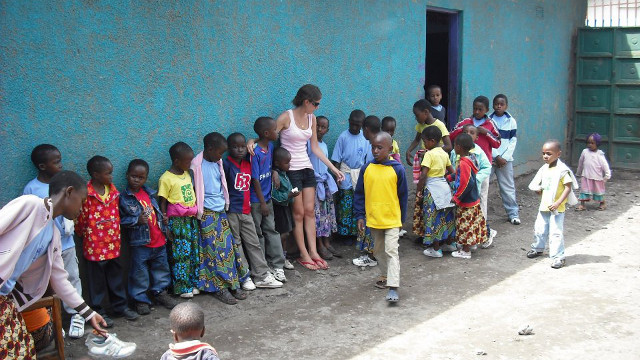SUMMARY
This is AI generated summarization, which may have errors. For context, always refer to the full article.

MANILA, Philippines – Summer is just around the corner. Before you and your friends send yourselves on volunteer programs abroad, take a moment to reflect.
Writer and traveller Rudayna Bahubeshi, in her article on The Huffington Post, says there is more to voluntourism than meets the eye.
Most volunteers (or voluntourists) are students or new graduates in it for the travel and cultural experience, or yuppies wanting a change of scene where they can “find themselves.” Some hope to truly make a positive impact and change in the community they get assigned to.
But Bahubeshi writes that “people interested in international volunteering need to get a realistic grasp on the situation.”
Most often, voluntourism does more good for the volunteer than it does to the community. In some cases, the community is even worse off with volunteer programs that do not match their needs and end up overburdening their resources.
More harm than good?
Having been a volunteer coordinator for one such program, Bahubeshi says the most frequent complaint from volunteers is that they felt they weren’t needed in the organization or community they volunteered for.
She writes, “The vast majority of volunteers I encountered did not make a valuable contribution to their host organization…Volunteers going abroad who can do meaningful work and provide specialized assistance represent a small fraction of participants.”
Because the demographic of volunteers are usually those with little to no relevant experience for the role they volunteered for, they become overly-dependent on host organizations who spend more time and effort on them than they are worth.
The volunteers can even end up burdening the community when they fill up a position that a local could have been compensated for or when their work results in a reduction of a paid employee’s hours and, eventually, salary.
This is also the fault of the company or organization that offers these volunteer programs.
Bahubeshi explains that, “these programs come at a cost, and many of these companies would much rather accept a volunteer lacking skills than turn away his or her money.”
This is why voluntourism has become a thriving industry in which companies “match” volunteers to communities all over the world for a fee, some without ensuring that the volunteer has the skills the community needs.

Genuine voluntourism
So does this mean volunteer programs are bad and you should never join one?
Not necessarily. Bahubeshi’s advice is that when you volunteer abroad, you should accept that it is for your own benefit and that you may not be of help to anyone there.
Or, you can wait until you have developed enough relevant skills for the volunteer job to be done. You should also ensure that when you volunteer, you will remain as a volunteer for a significant amount of time because, according to Bahubeshi, “making a positive impact at anything, anywhere, requires a time investment.”
Another recommendation is cutting out the middleman or the organization that offers to match you with a volunteer program. This saves you the money that would have been spent paying for the organization’s services.
Instead, contact the volunteer program, community or organization directly. This enables you to find out what the program really needs and allows you to adjust to the needs and values of the community rather than you imposing on them.
More initiative and independence will be required of you if you take this route but if you don’t have even that then you probably aren’t ready for the experience.
Bahubeshi concludes that if all else fails, you can always volunteer locally. Taking out the travel element may make it less romantic but with a limited skill set, you will probably be more useful in an environment you are more familiar with.
Speaking the local language will help you relate to the community members more. Your close networks will also be more useful in communities they can easily reach and contact.
Bahubeshi makes her point on voluntourism clear. Any good deed must be preceded by reflection.
If you’re only volunteering so you can post photos of yourself carrying seedlings or hugging foreign babies, perhaps it would be best to save the role for someone who can really make a change.
If you work hard and develop more skills, that person might just be you. – With reports by Pia Ranada/Rappler.com
Add a comment
How does this make you feel?
There are no comments yet. Add your comment to start the conversation.